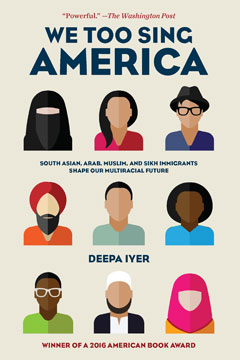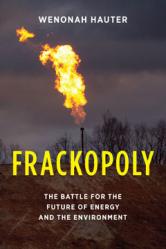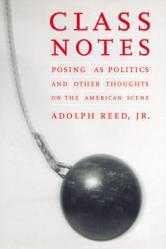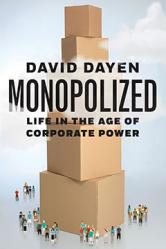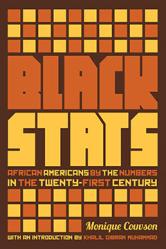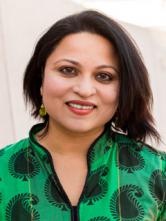“In an era of heightened racial anxiety and contradictory state policies, Iyer challenges us to imagine and aspire toward a truly equitable and inclusive multiracial society.”—Michael Omi, associate professor of Asian American studies, University of California, Berkeley |
“Deepa Iyer brings the head of a lawyer and the heart of a community activist to bear on her remarkable book We Too Sing America. It is a window into the struggles of the margins that allow the mainstream to remain humane.”—Vijay Prashad, author of Uncle Swami: Being South Asian in America |
“We Too Sing America is a necessary, important, and passionate work that records the hymns, blues, and joyous songs of a post-9/11 America, featuring diverse voices of American communities often excluded from the choir. But Iyer’s book aims higher: it reflects hope for America’s pluralistic future where these ‘others’ ultimately emerge as the protagonists of not only their own narratives but of a new, vibrant America as well.”—Wajahat Ali, author of The Domestic Crusaders |
“A critical history of the specific race and faith discrimination South Asian and Arab communities struggled through and are still reconciling in our post-9/11 era. . . . Thank you, Deepa Iyer, for your courage—and for this book.”—Hyphen |
“At a time when Black and Brown communities from Murfreesboro to Ferguson are under attack, Deepa Iyer reminds us in this timely and moving book that building meaningful and lasting allegiances, shaped by young people, is the urgent task ahead of us.”—Vincent Warren, Center for Constitutional Rights |
|
“Iyer’s personal journey organizing around racially charged events post-9/11 defines a new movement in America that is centered on the desire to reclaim our country. Her account of the policies, rhetoric, and actions that marginalize, demonize, and criminalize brown people because of their identities, their names, and their faiths provides a call to action for all of us.”—Rashida Tlaib, former Michigan state representative and the second Muslim woman to serve in a state legislature |
“In smooth and fluid prose, Iyer provides us with a wealth of detail on the struggles faced by South Asian, Arab, Muslim, and Sikh youth, women, and men who refuse to be excluded from full membership in the United States.”—Rajini Srikanth, author of Constructing the Enemy: Empathy/Antipathy in U.S. Literature and Law and The World Next Door: South Asian American Literature and the Idea of America |
“A fascinating read! Iyer is never shy to share her strong opinions; she has written passionately, tying well-researched sections on policy together with emotional accounts of national events. Whether you ultimately agree or disagree with the narrative, this book is a rare opportunity to read about a perspective on the intersection of community, governance, policy, family, and law.”—Kal Penn, author and public servant |
“With years of experience in civil rights advocacy, Deepa Iyer’s book is an important contribution to the work of building a stronger and more inclusive democracy.”—Congresswoman Judy Chu (D-CA) |
“With strong research and individual accounts, Deepa Iyer’s We Too Sing America fills an unfortunate gap in knowledge of the effects of post-9/11 bigotry and violence on South Asian, Arab, and Muslim communities. It is personal, political, and powerful.”—Hari Kondabolu, comedian and writer |
|

